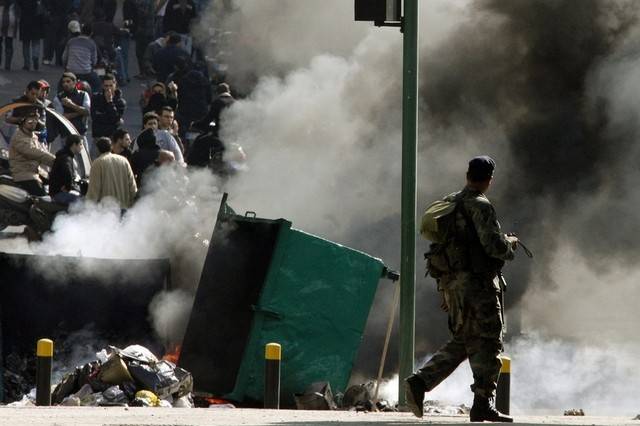www.thenational.ae

Summer has turned into a nightmare for the Lebanese, with the mercury rising and more power cuts adding to the misery of streets full of rubbish, turning what once was the “Switzerland of the Middle East” into a dump.
Sadeq Nasher, writing in the Sharjah-based daily Al Khaleej, said the garbage crisis is a reflection of the presidential vacuum that has existed for over a year. The political dimension of this is the effect on the Lebanese, who have yet to find someone to save them from the conflicts between politicians, each seeking to grab a piece of the pie.
“Today, Lebanon lives the impact of its worst fears. It may lead the country to drown in additional crises, particularly in light of threats voiced by some parties that they would take to the streets and further aggravate the situation,” he wrote.
“This would be consistent with the objectives of some political forces which would like to enhance the complexity of the political scene.”
Lebanon has often been a place where the agendas and projects of internal and regional powers are played out. He said the situation in Syria had increased this, with surges in violence.
Lebanon is waiting for more than just a solution to its presidential vacuum. It awaits answers to many crises, and the longer they take to arrive, the deeper the country sinks.
“Lebanon is going through economic and environmental hardships as witnessed by the mountains of garbage,” he wrote.
“If no national solutions are found, Lebanon will be dragged into something worse than the presidential vacuum.”
Nasher’s conclusion was that reason must be invoked to resolve the crises facing Lebanon, with consensus required over solutions that are acceptable to everyone.
Writing in the Beirut-based French daily L’Orient Le Jour, Michel Touma invoked the popular idiom that “governing means predicting”, adding that it also requires clairvoyance.
“These are virtues that have greatly lacked in dealing with the domestic garbage problem.
“The most elementary logic dictated that practical steps be taken to set up a quick, temporary alternative to the closing of the Naame dump. An extensive awareness campaign, involving the municipalities, on the importance of separating different grades of rubbish could have been organised between January and July, for example.
“The export option could also have been assessed and prepared, as well as parallel sorting, ahead of the July 17 deadline.
“These transitional alternatives simply required a spirit of initiative, determination, an organisational effort to ensure that, pending the sharing of the pie, the country does not buckle under its own waste. But the pilot was not in the cockpit.”
Touma concluded that it was not realistic to hold the relevant minister responsible for the actions involving several parties.
“But one cannot help deploring the complete lack of foresight and leadership in the management of this matter.
“Neither can one blame large corporations for seeking solid political parties, but does this justify the fact that these parties s allow themselves to treat the people with contempt by ignoring their rights to a dignified and healthy life, away from rodents and the risk of an epidemic?”
Translated by Carla Mirza



